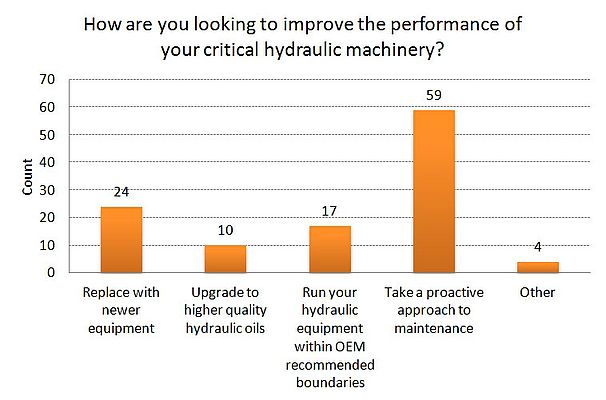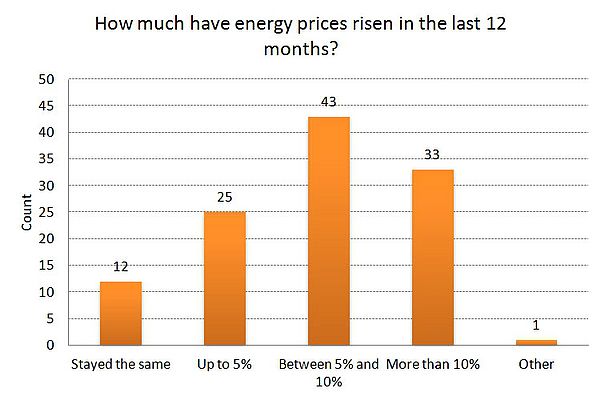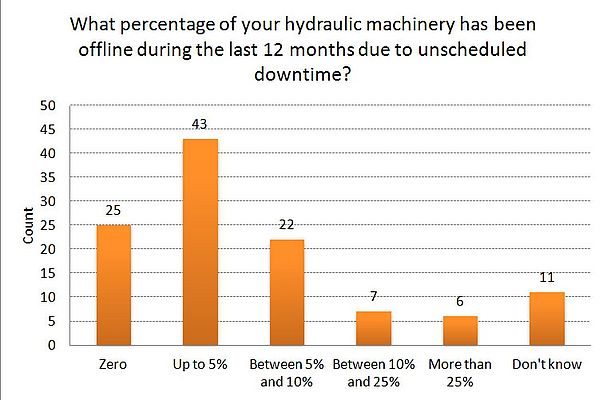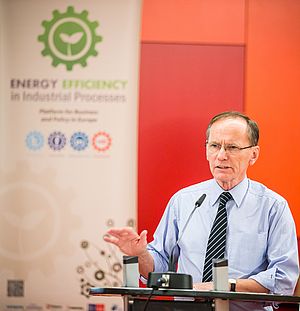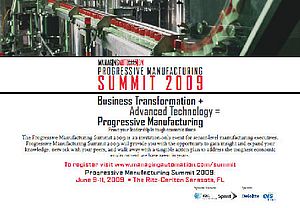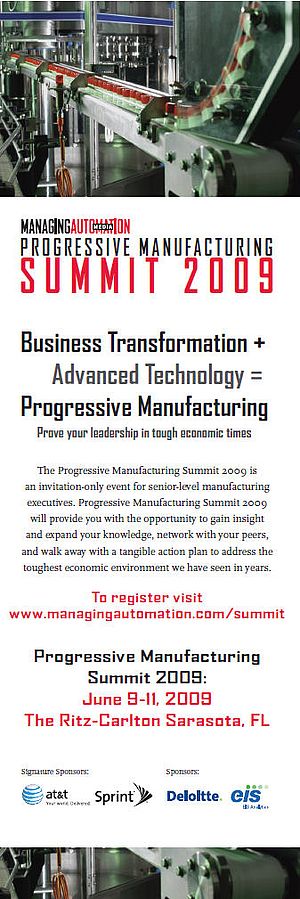In times of rising energy costs and ever increasing demands for uninterrupted machine performance, the reliability of industrial equipment has become more and more important. As the results of a survey, carried out by Thomas Industrial Media, show, this is also true for hydraulic systems and machinery, which are used in a great variety of industries. The survey also asked the question of how operators of hydraulic systems try to optimize the output of their equipment.
Energy prices are soaring. What is obvious for every private citizen when looking at her or his most recent energy bill, is even truer for the manufacturing and processing industries. According to the World Energy Outlook of the Paris-based International Energy Agency (IEA) published in November last year, the global demand for energy is set to increase 40 percent by 2035. And the transition from atomic and fossil to renewable energies will not contribute to cut energy prices in the short to medium term. Alternative technologies have to be developed and new energy grids must be installed, which means financial investment on the side of the energy suppliers. Most likely, they will at least partly hand over those costs to their customers.
An additional cost factor for the manufacturing and processing industries is the unscheduled downtime of machinery, due to the failure of certain critical components. Unplanned downtime not only means that the machine component concerned has to be repaired or replaced. In the worst case it also results in a lack of productivity as long as the technical equipment remains offline. Depending on the time span needed for maintenance, this might result in incalculable economic consequences.
The survey on the use of hydraulic systems and machinery was carried out by Thomas Industrial Media among more than 110 companies in early January 2012. Most of the companies are from the Electrical, Electronics and Computing industries, followed by Machinery and Manufacturing, Fabricated Metal Products, Automotive, Aircraft and Transport, Food, Beverage and Tobacco. More than 29 percent of the respondents have a company size of more than 500 employees; 23 percent are small companies of up to 24 employees; almost 19 percent have between 25 and 99 employees. As far as job function of the respondents is concerned, the majority deals with Operations and Maintenance, followed by General and Corporate Management, Plant Management and Production Engineering.
Energy costs as a central concern
That the costs of energy are indeed a central concern for a huge majority of industrial branches is very obvious. Almost 90 percent stated that energy prices have increased over the last 12 months. Of those, more than 38 percent paid between 5 and 10 percent more, and for more than 29 percent, energy prices rose even more than 10 percent. Only a minority - 10.6 percent - stated that energy costs for their enterprises had stayed more or less the same in the past year.
Those results coincide with the experience that ExxonMobil Lubricants and Specialties, one of the leading suppliers of industrial lubricants, has made when talking to its their customers.
"Increased energy costs have resulted in many companies looking at ways in which they can operate more efficiently and use less energy," said Umut Urkun, European Industrial Lubricants Marketing Advisor, ExxonMobil Lubricants & Petroleum Specialties Company. "Some of the latest hydraulic oils can help companies in this mission. Mobil DTE 10 Excel for example can provide up to a six percent improvement in hydraulic system efficiency compared to conventional mineral oils."
The figures mentioned earlier regarding rising energy costs suggest that this aspect will become all the more important urgent in the near future.
Unscheduled downtime of machinery
As far as the unscheduled downtime of machinery is concerned, only 22 percent of the operators of hydraulic equipment stated that they had no issues. More than 38 percent claimed that up to 5 percent of their hydraulic machinery had been offline during the past 12 months, and 19.5 percent declared a downtime of between 5 and 10 percent. For more than 6 percent of the respondents, between 10 and 25 percent of their machinery had been down and hence unproductive, and 5.3 percent even experienced a breakdown of more than a quarter of their hydraulic machinery.
"Due to the competitive nature of the industrial marketplace, companies are continually looking to maximise productivity while reducing unscheduled downtime and costs," said Urkun. "Alongside the energy efficiency benefits achieved of the latest hydraulic oils, using advanced oils such as Mobil DTE 10 Excel can offer extended oil drain intervals whilst maintaining outstanding hydraulic system cleanliness and component protection."
Strategies to improve machine performance
According to the respondents, the most critical parts in hydraulic systems are pumps (31 %) and valves (30.1 %). In order to improve the performance of their hydraulic machinery, more than half of the respondents (52.2 %) want to achieve this goal by taking a proactive approach to maintenance.
"As part of their proactive maintenance strategy, operators should incorporate an oil and equipment condition monitoring programme alongside the use of a high quality hydraulic oil," added Urkun. "By examining changes in the oil analysis data over time, also known as 'trending', it is possible to proactively address undesirable conditions before they become problems. ExxonMobil offers customers access to its proprietary online Signum oil analysis programme."
Proactive maintenance certainly saves some industries a lot of money. However, it is a quite complex issue, since it demands as a first step to determine the root causes of failures, and then implementing corrective action in order to prevent those failures.
More than 21 percent of those who responded to the survey intend to replace their current machines with newer equipment. This approach is usually called 'preventive maintenance', which replaces critical components periodically. While this might be a suitable method for components where durability is well-known, it might also result in an unnecessary replacement of intact machinery - and thus a waste of money.
Conclusion
As in many industrial sectors, operators of hydraulic systems and machinery struggle with rising energy costs and unforeseen breakdowns. This demonstrates that within the Total Costs of Ownership (TCO), the actual purchase of a machine accounts for only a very small part. Much more important is the performance of machines in terms of energy efficiency, but also in terms of reliability and durability. In times of ever-increasing demands on machine performance, it is the task of every industrial player to meet this challenge and remain competitive.


